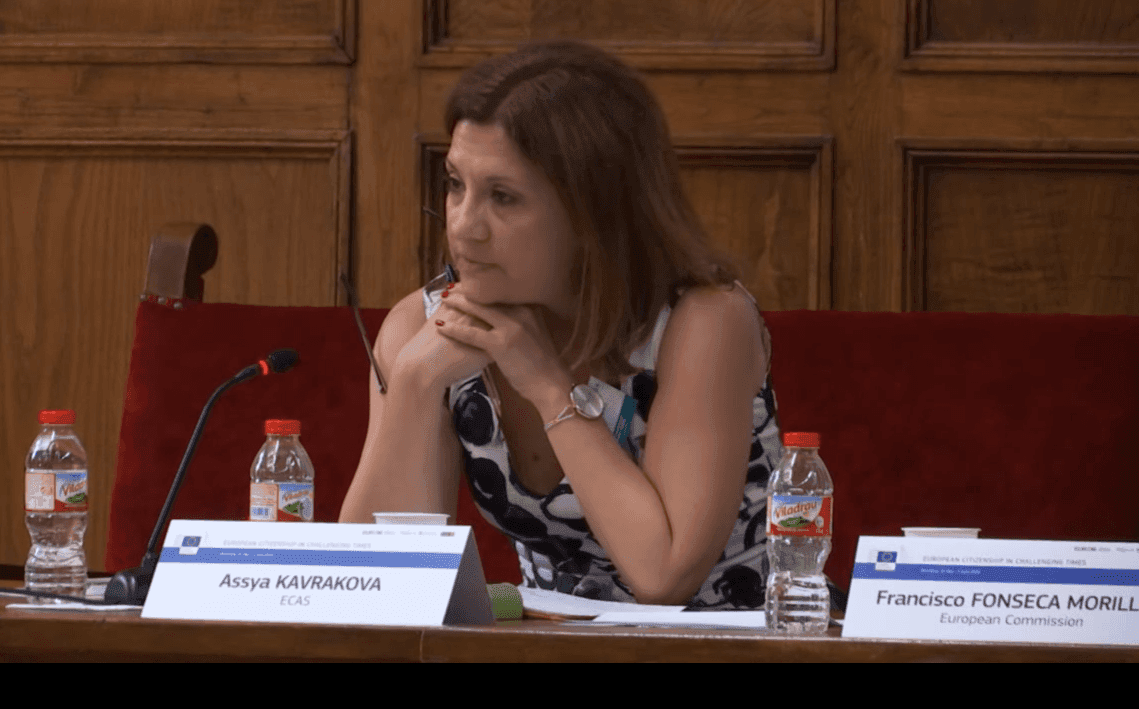
On 31 May and 1 June, Barcelona hosted the conference ‘European Citizenship in Challenging Times’ and the annual Civil Dialogue, organised by the European Commission in collaboration with EUROM, the University of Barcelona and Barcelona City Council. ECAS’ Director, Assya Kavrakova, was invited as a speaker to the second panel session on how to consolidate the EU’s achievements and strengthen the Union citizens’ rights.
In her intervention, Assya used a famous quote of the Serenity Prayer to illustrate that we have to consolidate the EU’s achievements wisely, by identifying what is important to protect and not take for granted, what can be further developed and improved out of the instruments already at hand, and what is missing and should be added.
She went on to explain that what needs to be safeguarded and not taken for granted is free movement as the most cherished right by EU citizens, the benefits of which go beyond mere single market considerations.
Assya also drew the attention to the fact that the benefits of this important right have been misleadingly rejected through the benefit tourism narrative used in several EU countries. Yet studies such as the one conducted by ECAS in 2014 on the fiscal impact of EU migrants in national economies dispel this myth by showing that EU migrants contribute more than what they receive from host countries. While she acknowledged some pitfalls regarding the implementation of the right to free movement that could be improved, she argued that efforts should be put into addressing the root causes of such pitfalls and seeking appropriate solutions rather than opposing it altogether on baseless arguments.
ECAS’ Director also referred to the disproportionate measures that are being adopted at EU level against the new security challenges, while there already are tools such as the Schengen information System (SIS) for this purpose that have not been used to their full potential.
Assya concluded her intervention focusing on the missing elements. She argued that what is missing at EU level is social listening. She contended that existing instruments at EU level are essentially made to listen to represented interests, but not to individual citizens who are not part of organised groups and still want to voice their concerns. She explained that traditional public consultations are not suitable instruments to engage with citizens and that alternative mechanisms, in particular crowdsourcing legislation, should be considered.